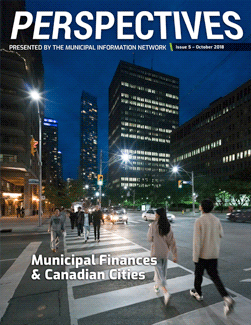This article was originally published in GOVTECH magazine in Washington, DC and is reprinted with permission. www.govtech.com
This is the story of a university professor, a blogger and a journalist, each part of a larger narrative about the intersection of crime statistics and fear. Once it came together, the police department and city council wanted to operationalize it. But first it got messy.
At issue is that residents in a number of Seattle neighborhoods think crime is much worse than it is. The results of a Seattle University survey asking 6,454 city residents about perception of public safety found that in Ballard, a neighborhood in the northwestern part of the city, fear of crime ranks higher than most of the 59 Seattle neighborhoods covered by the survey. The My Ballard blog published these numbers, and the story caught the attention of Seattle Times columnist Gene Balk, who followed up by comparing the numbers from Seattle University's fear-of-crime scale with actual crime rates for Seattle neighborhoods, which he calculated by using Seattle Police Department crime data and population estimates from the U.S. Census Bureau.
Balk's analysis found several neighborhoods where fear was higher than average and crime was lower than average. The reader response was swift, angry and clear: "Don't tell me what it's like to live in my neighborhood." Data reflected reality just not their reality. It prompted Balk to write a follow-up column to more fully capture the lived experience that was not evident in the numbers.
The survey findings were also the subject of a hearing before the city council. The professor who led the study explained the disconnect between data and the lived experience as the manifestation of an angry bit of Mean World Syndrome, a phenomenon through which violence-related media content makes consumers believe that the world is more dangerous than it actually is. It didn't help that neighbors were frustrated with slow police responses, and by their own accounts, many residents had stopped reporting crime, casting a pall on the legitimacy of the survey data. The Seattle Police Department told the City Council the contextualized data was helpful. For its part, the council wanted to know more about what made residents fearful.
There are a number of elements in play in stories such as these: data, engagement and storytelling. This Seattle case demonstrates what happens when data doesn't map to lived experience.
Data is authoritative, but its legitimacy can easily be called into question. It helps policymakers and planners see deeper and more broadly into the life of the city. Data is helpful in operations, planning and politics. Analytics can surface correlations that would have otherwise remained unknown.
Civic engagement is the result of asking questions of the people who live and work in a particular place. Methods vary in their rigor and results vary in their usefulness.
Then there is storytelling. This is not a strong suit of most public agencies, leaving constituents to their own devices to make sense of what is going on. Effective storytelling not necessarily in the journalistic sense provides a narrative about which people may argue, but at least lays out a common fact pattern.
Many public agencies do well to get one of these elements right; the lucky ones get two. But if policy decisions are to be trusted in an era of data-informed government, then government needs to get good at doing all three well, every time.








